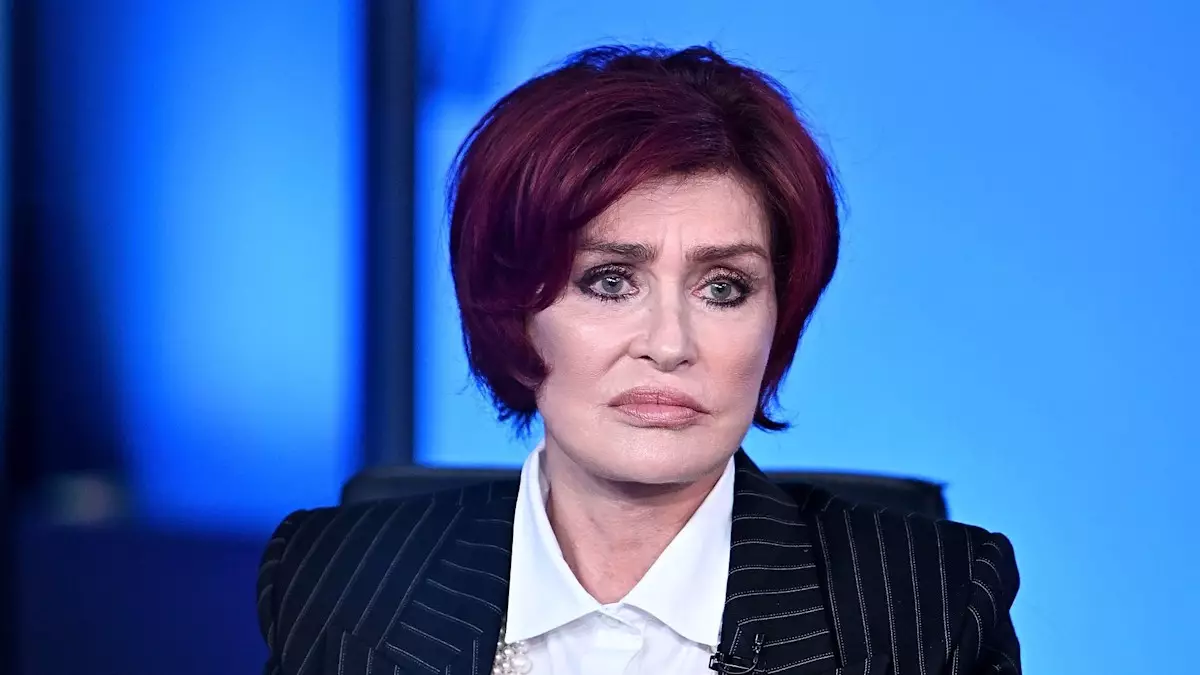The music industry has always been a double-edged sword, offering stardom and opportunity while demanding an unyielding price from its young aspirants. In light of the tragic passing of Liam Payne, formerly of One Direction, a poignant reaction from industry veterans underscores the systemic issues that have long plagued the entertainment world. Sharon Osbourne, a prominent figure in this realm, has laid bare her feelings on this heartbreaking loss, emphasizing the profound responsibility that the music industry owes to its young talents. Her heartfelt tribute not only honors Liam’s memory but also serves as a clarion call for reflection and reform within the industry.
Sharon Osbourne’s comments bring to light the immense pressures faced by young artists thrust into the spotlight. She observed that Liam, who was merely 16 when One Direction emerged, entered an environment that is often unforgiving and harsh. Once a hopeful competitor on The X Factor, he merged with a group that quickly skyrocketed to unparalleled fame, yet the toll that such success exacted was severe. Osbourne’s lament that “we all let you down” paints a distressing picture of an industry quick to celebrate success but unprepared to offer the necessary emotional and psychological support to the stars it creates.
To think of young artists like Liam navigating this high-pressure environment without adequate support systems is alarming. It begs the question: who champions the wellbeing of these young individuals? As they catapult from obscurity to global fame, the transition can be overwhelming, and for many, including Liam, it has led to well-documented issues with mental health and addiction.
While One Direction achieved monumental success with chart-toppers like “What Makes You Beautiful,” the story doesn’t end with the glittering accolades. Liam’s struggles became increasingly visible throughout his career; his vulnerability shone through in interviews where he courageously opened up about his battles with addiction. His admission of reaching “rock bottom” while at the peak of One Direction’s success is a stark reminder of the often-hidden toll that fame can take.
The entertainment industry is notorious for its glamorized narratives, often glossing over the darker aspects of fame. Liam’s story encapsulates this duality. While fans reveled in the band’s success, few truly grasped the internal battles fought behind the scenes. The pandemic, which exacerbated the mental health struggles of many, became a turning point for Liam, leading him to seek help and announce a commendable six-month sobriety in 2023. This period offered a flicker of hope, a narrative that fans desperately wanted to believe in—though it ultimately proved to be a false dawn.
Sharon Osbourne’s heartfelt tribute serves more than just a mourning of a lost talent; it echoes a larger call to action for the music industry to reevaluate its role in nurturing young talent. The heartfelt plea, questioning where the industry was when Liam needed support, highlights an urgent need for change.
In the wake of such tragic losses, it is incumbent upon industry stakeholders to establish more robust support frameworks. Concerted efforts must be made to provide mental health resources, foster open dialogues about addiction, and prioritize the overall wellbeing of artists. The conversation sparked by Liam’s passing must lead to tangible action—creating a space where young stars feel safe and supported as they navigate the immense pressures of fame.
As we reflect on Liam Payne’s life and the impact of his untimely death, the overwhelming sentiment is one of collective responsibility. Industry veterans and fans alike share in the sorrow of a promising life cut short, recognizing the urgent need for change. Through Sharon Osbourne’s poignant words, the music industry is reminded of its duty to protect those who contribute to its success.
In remembering Liam, we must strive to honor his legacy not just through mourning but through actions that can prevent similar tragedies in the future. As we celebrate the brilliant artistry of stars like Liam, we must also ensure that the frameworks around them are supportive, compassionate, and holistic. Only then can we hope to create an environment where young talents can thrive without sacrificing their mental health and well-being.

